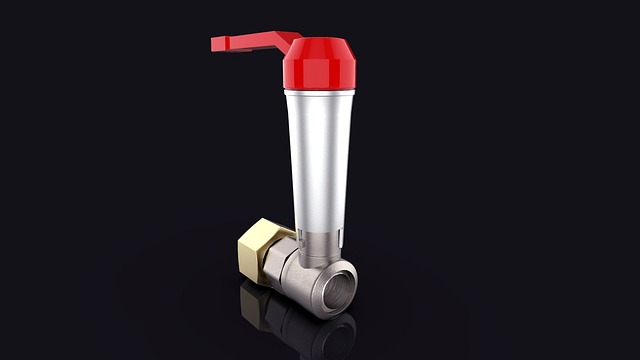Valves are an essential component of any system in industrial and residential settings. Throughout history, valves have been used to regulate the flow of liquids or gases within a closed container. Nowadays, they’re used to control many different types of processes, from water filtration systems to power plants. Valves come in various shapes and sizes; each specialized for a specific application. In manufacturing, valves control the flow of steam, water, and other fluids through pipelines or chambers. They are also used in pressurized systems to regulate pressure or maintain ideal operating conditions. Valves can be simple mechanisms that open and close with a lever or complex ones with automated functionality with sensors and remote operation capabilities. They can also control the flow of hazardous materials, such as chemicals or radioactive waste, in industrial settings. Valves’ diverse applications across industries make them invaluable for ensuring efficient and safe operations.
Automotive manufacturing
The automotive industry is one of the most common industries that rely on valves. Automobiles use valves to regulate the flow of fluids such as fuel, engine oil, transmission fluid, power steering fluid, antifreeze, and brake fluid. Pressure relief valves are also used in engines to prevent damage due to excessive pressure. Safety valves are used to prevent explosions, and check valves are installed in the exhaust system to prevent back pressure from entering the engine. In addition, special valves are also used during manufacturing to keep the assembly line running smoothly. These include solenoid valves that open and close pneumatically or electronically; manual ball and butterfly valves for controlling fluid flow direction; and needle or diaphragm valves that control flow rate and pressure.
Chemical processing
Valves are a vital component of the chemical processing industry due to their ability to regulate the flow of liquids and gases. Industries such as petrochemicals, pharmaceuticals, and food processing use specialized valves for handling hazardous materials. Safety valves, for instance, are used to prevent explosions or leaks in processing plants, underground storage tanks, and pipelines. Various manual and automated valves are also used to maintain ideal operating conditions. These include ball valves with a hollowed-out sphere that allows flow control, pressure relief valves responsible for preventing overpressure due to mechanical failures or operator errors, and check valves with a flap that prevents backflow. Butterfly valves are used to manage the flow of fluids through pipelines and chambers.
Water treatment
Water treatment plants use valves for various operations, from filtration to chemical treatments. Manual and automated valves control water flow through various pipes and chambers in the plant. Check valves prevent backflow, while safety valves ensure that pressure levels remain safe. Butterfly valves are also used for controlling flow rate and direction in larger pipelines. In addition, diaphragm valves are used to regulate the pressure of chemicals added during the treatment process. Furthermore, ball valves are used in water filtration systems to control water flow between filter chambers and storage tanks. The design of these valves ensures that they do not corrode or rust over time, making them ideal for water treatment applications.
Power plants
Valves are essential components of any power plant, from nuclear to hydroelectric. Manual and automated valves are used during steam generation, water filtration, cooling, and pressure regulation operations. Safety valves protect the plant from catastrophic failure due to overpressure, while check valves prevent backflow in the system. In addition, butterfly valves regulate the steam flow between turbines and pumps, while ball valves control the flow rate in larger pipelines. Diaphragm valves also control pressure in tanks and chambers and regulate the chemicals added to water during treatment. The valves used in power plants must be of the highest quality and withstand extreme temperatures and pressures. It would be best to choose valves from reputable manufacturers such as https://valveman.com/valves/ball-valves/.
Marine applications
Valves are essential to any vessel, from small recreational boats to large cargo ships. Ball valves are the most common type used in marine applications due to their simple design and reliability. These valves can be manually operated or automated for remote use. In addition, safety valves protect vessels from overpressure caused by mechanical failures or operator errors. Butterfly valves and check valves are also used for regulating the flow of liquids and gases in pipelines. In addition, pressure relief valves are installed in fuel tanks to prevent explosions due to excessive pressure. Marine vessels must adhere to strict safety regulations; thus, marine-grade valves must be used to ensure the safe operation of a vessel at all times. Valves must also be regularly inspected for any signs of corrosion or damage.
Oil and gas
Valves are essential for oil and gas operations, from drilling to refining. Manual and automated valves control the flow of liquids and gases throughout the system. Safety valves protect pipelines from overpressure due to mechanical failures or operator errors, while check valves prevent backflow. Butterfly valves regulate the flow rate through larger pipes, while ball valves control the flow of hazardous materials. In addition, pressure relief valves are installed in tanks and chambers to prevent explosions due to excessive pressure. The valves used in oil and gas must be of the highest quality, as they must withstand extreme temperatures and pressures. It is also important that the valves are made of corrosion-resistant materials to ensure their longevity.







